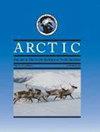当地专家对曼尼托巴省丘吉尔市人类与北极熊互动的观察、解释和回应
IF 0.8
4区 地球科学
Q4 ENVIRONMENTAL SCIENCES
引用次数: 0
摘要
据报道,在整个北极地区,北极熊(Ursus maritimus)与人类之间的互动和冲突正在增加,因此迫切需要更好地了解如何预防这种冲突或改善其结果。关于预防和减轻人类与北极熊冲突的策略的大量知识都掌握在当地专家手中,然而当代野生动物管理者往往相对难以获得这些知识。这项研究有三个主要目的:记录和综合当地对马尼托巴省丘吉尔北极熊行为的了解,描述对北极熊的看法和解释,并检查当地专家的知识、看法和行动之间的联系。我们确定了一套熊的行为,当地专家一直观察并解释为熊的意图的线索。这些行为并不是这个地区独有的。然而,对北极熊行为可预测性的不同看法和对熊的性质的不同解释显著影响了研究参与者应对熊的策略。我们的研究结果表明,人类相关因素比目前的人熊互动模型更复杂,因此需要开发更丰富的模型来理解是什么激励和影响了人类对熊的行为和反应。本文章由计算机程序翻译,如有差异,请以英文原文为准。
Local Experts’ Observations, Interpretations, and Responses to Human-Polar Bear Interactions in Churchill, Manitoba
Since interactions and conflicts between polar bears (Ursus maritimus) and people are reportedly increasing across the Arctic, there is a pressing need to better understand how such conflicts can be prevented or their outcomes ameliorated. A great deal of knowledge about what strategies work for both preventing and mitigating human-polar bear conflicts lies with local experts, yet this knowledge has often remained relatively inaccessible to contemporary wildlife managers. This study had three main aims: to document and synthesize local knowledge of polar bear behaviour in Churchill, Manitoba, to characterize perceptions and interpretations of polar bears, and to examine the linkage between local experts’ knowledge, perceptions, and actions. We identified a suite of bear behaviours that local experts consistently observe and interpret as cues to the bears’ intent. These behaviours are not unique to this locale. Nevertheless, differences in perspectives on the predictability of polar bear behaviour and in interpretations of the nature of bears significantly influence study participants’ strategies for responding to bears. Our findings demonstrate that human-related factors are more complex than current models of human-bear interactions account for, so there is a need to develop richer models for understanding what motivates and influences human behaviours and responses towards bears.
求助全文
通过发布文献求助,成功后即可免费获取论文全文。
去求助
来源期刊

Arctic
地学-环境科学
CiteScore
2.30
自引率
0.00%
发文量
51
审稿时长
6-12 weeks
期刊介绍:
Arctic is a peer-reviewed, primary research journal that publishes the results of scientific research
from all areas of Arctic scholarship. Original scholarly papers in the physical, social, and biological
sciences, humanities, engineering, and technology are included, as are book reviews,
commentaries, letters to the editor, and profiles of significant people, places, or events of northern
interest
 求助内容:
求助内容: 应助结果提醒方式:
应助结果提醒方式:


